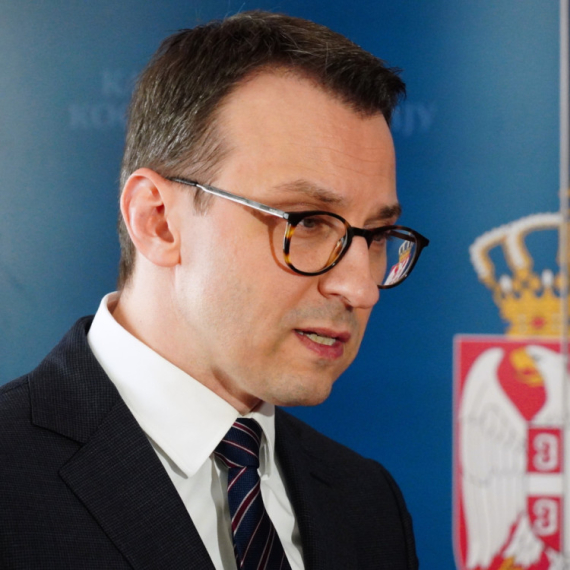Ashton was "not completely honest," says analyst
<a href="http://www.b92.net/eng/news/politics.php?yyyy=2014&mm=04&dd=28&nav_id=90124" class="text-link" target= "_blank">Catherine Ashton's visit to Serbia</a> represents "an unusually strong expression of support for the new government and the country's EU integration."
Friday, 02.05.2014.
16:47

Ashton was "not completely honest," says analyst
"It is unusual for the EU High representative for foreign and security policy to personally appear in a non-EU member state to support the establishment of a new government and to address parliament," Toby Vogel, editor of the Brussels-based weekly European Voice, told Tanjug.Vogel noted that in her speech to Serbian MPs Ashton "never uttered the word of Kosovo, but was only mentioning Priština," which, according to him, shows she made an effort to be considerate toward her hosts.
He also believes that the EU is starting to see Serbia as a cornerstone of integration of the Western Balkans, and that Serbia is "rapidly overtaking Montenegro on its European path."
Alexandra Stiglmayer, senior analyst at the European Stability Initiative (ESI), also believes that Serbia is "gaining importance in Brussels."
She told Tanjug that she was under the impression that Serbia "has strong support not only in the Commission, but also in the European Council." Stiglmayer added that the Ukrainian crisis "plays a certain role" in this.
According to her, many in Brussels believe that it is now necessary to forge stronger ties with Western Balkan countries in order to prevent further spread of Russia's influence.
She therefore believes that the pressure from the EU on Serbia to "distance itself from Russia" will grow over time.
In this context, Stiglmayer said she was "not convinced that Ashton was completely honest" when she said during her visit to Belgrade on Monday that the EU will not ask Serbia to choose between Moscow and Brussels.
When it comes to Belgrade's expectations that Serbia could complete accession negotiations by 2020, both analysts expressed "some reservations" about this time frame.
"The accession process is technically very complicated, so despite the best political will it be difficult to meet all the criteria within this time," Tanjug quoted Vogel as saying, while Stiglmayer noted that the criteria for membership was progressively more demanding after each round of enlargement.
According to her, Croatia's accession was more difficult for that country than was the case with Bulgaria and Romania. For that reason, Stiglmayer expect that it will be the same with Serbia.

















Komentari 16
Pogledaj komentare